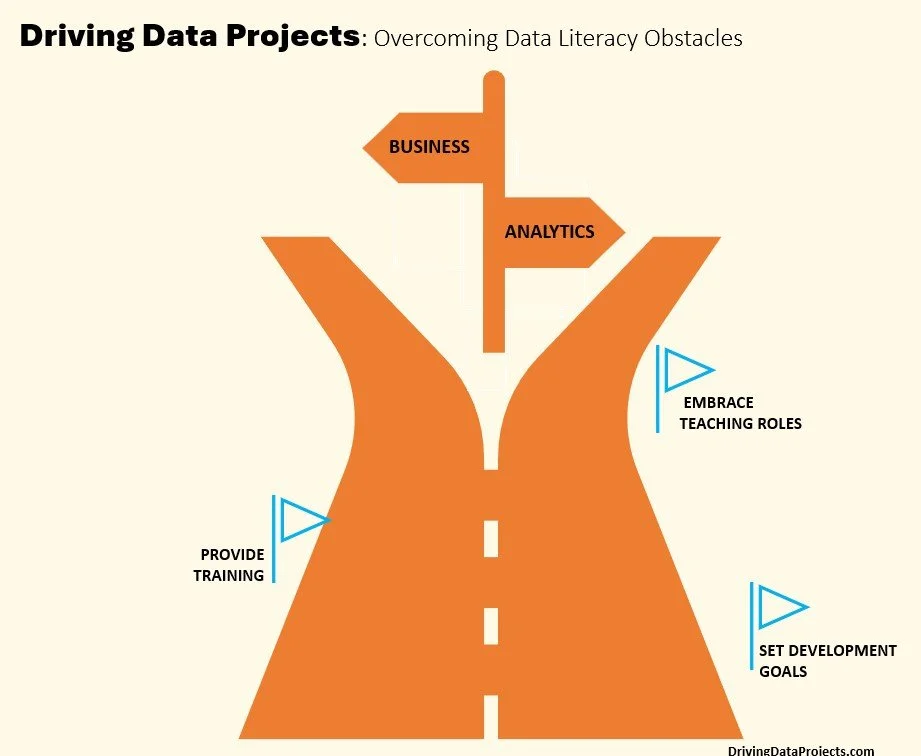The Great Responsibility Shift: From Corporate Stewardship to Individual Burden
Just as beverage companies once managed their packaging waste, tech companies were once more straightforward about their data practices. But now, we’re seeing a troubling pattern of companies quietly expanding their data collection through obscure settings and opt-out mechanisms buried in lengthy terms of service.
Building a Data-Literate Insurance Workforce: Strategies for CDOs
Data literacy has become a critical skill for insurance professionals at all levels. As Chief Data Officers (CDOs) in the insurance industry, one of the most crucial challenges is fostering a data-literate workforce capable of leveraging data for better decision-making and innovation. This blog post explores strategies for CDOs to build and maintain a data-literate insurance workforce, highlighting real-world examples and addressing common challenges.
Data Quality: Plan for Resistance
As organizations rush headlong into digital transformation initiatives, a critical factor often gets overlooked: data quality and the resistance to support ongoing data quality efforts. In the race to implement cutting-edge technologies and overhaul business processes, many companies fail to recognize that the success of these efforts hinges on the accuracy, completeness, and reliability of their underlying data. This oversight can lead to disastrous consequences, undermining the very goals that digital transformation aims to achieve.
Data Literacy: The $100 Million Insurance Policy You're Probably Ignoring
In boardrooms across the globe, executives are gleefully signing off on multi-million-dollar investments in data infrastructure. Big Data! AI! Machine Learning! But here’s the inconvenient truth they’re overlooking. Without a data-literate workforce, these shiny new toys are as useful as a Ferrari in a traffic jam.
Where Business Meets Technology in the Marketplace of Information
Real estate focuses on governance and value derivation from assets. The Marketplace facilitates value-driven transactions while maintaining order, quality, and trust throughout the ecosystem. BOTH must work TOGETHER.
Cultivating a Data Ecosystem: A Fresh Approach to Organizational Data Management
Many organizations have recognized the need to enhance their data management capabilities. The traditional response has been to centralize these efforts, often by appointing a Chief Data Officer (CDO). However, this well-intentioned approach often leads to challenges and resistance within the organization.
Data Storytelling: Transforming Insights into Action With 2 Case Studies
The ability to craft compelling narratives from complex information is a superpower. Working with graduate students across various sectors, I help communicate how effective storytelling can bridge the gap between data teams and business leaders. Let's explore how to master this art and avoid common pitfalls.
Analytics Challenge: Lack of Data Literacy Among Stakeholders
The symbiotic relationship between technical analytics development and business utilization underscores the heightened emphasis on data literacy skills. Recognizing that literacy demands effort from technical and business domains, analysts must simplify and convey insights while business teams must effectively apply them.
All Technology Projects are Data Projects
One of the biggest ideas in Driving Data Projects (the book) is that "all technology projects are data projects." Yet data is still an afterthought in many organizations—even with AI on the horizon (or now, in many firms' backyards).
Author of Data Quality: The Field Guide, Tom Redman, popularized the idea that the most important moments in a piece of data's lifetime are the moment it is created and the moment it is used. These moments often occur outside of IT. The business consumes vast amounts of data, emphasizing the importance of business involvement in data quality management. Those who have provisioned and consumed data know from experience that bad data dies hard. It will get rid of you if you don't get rid of it.







